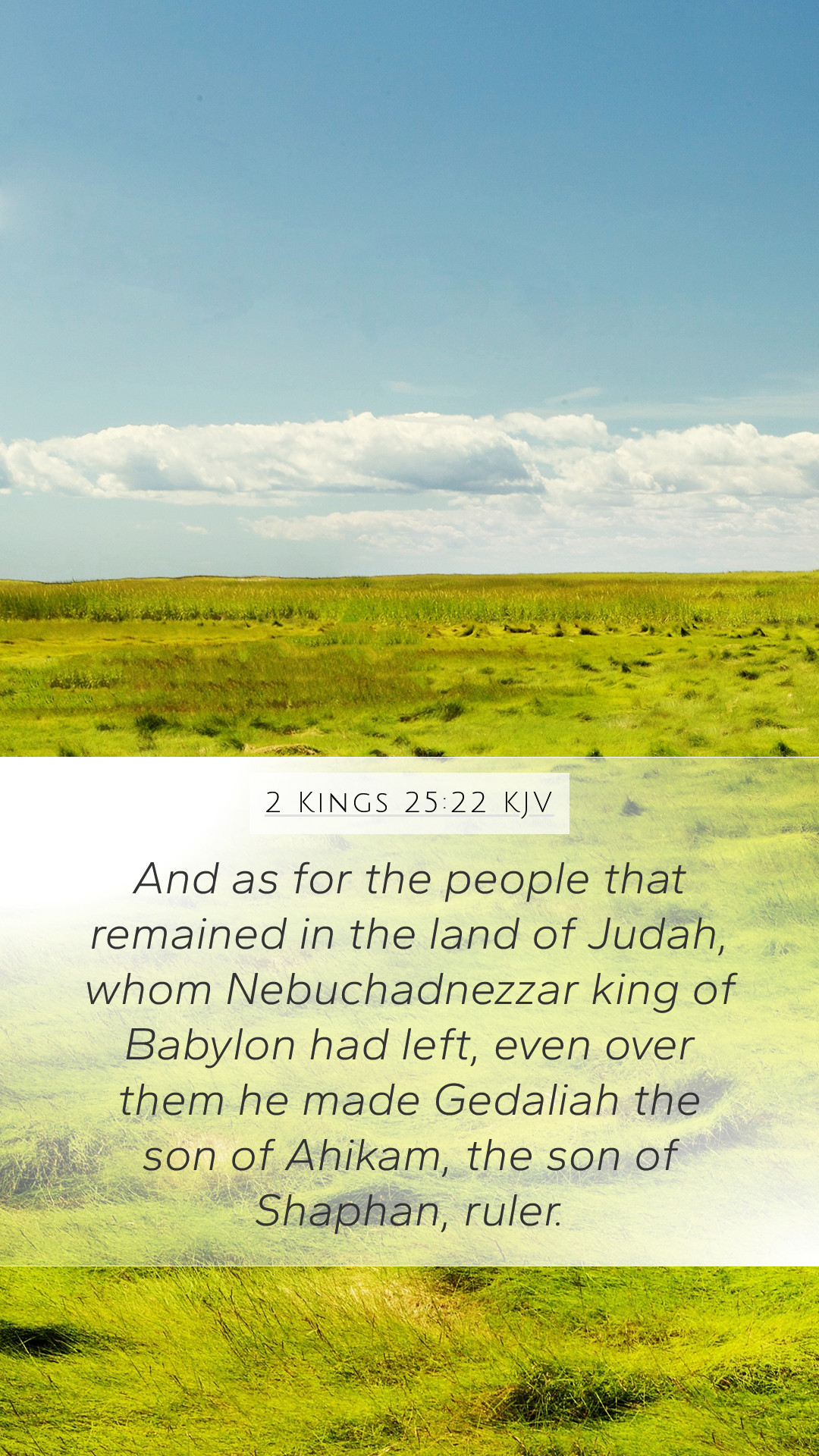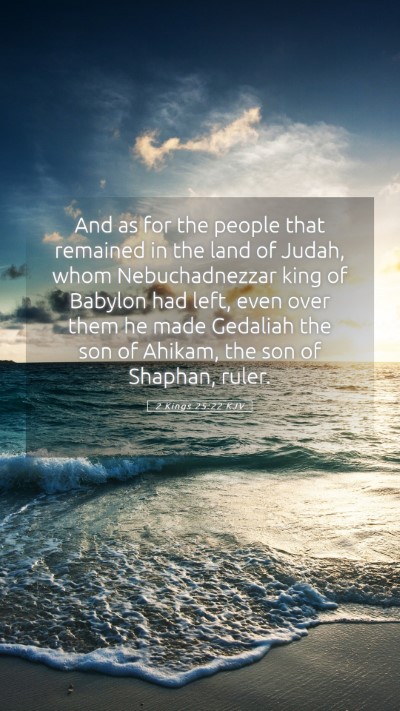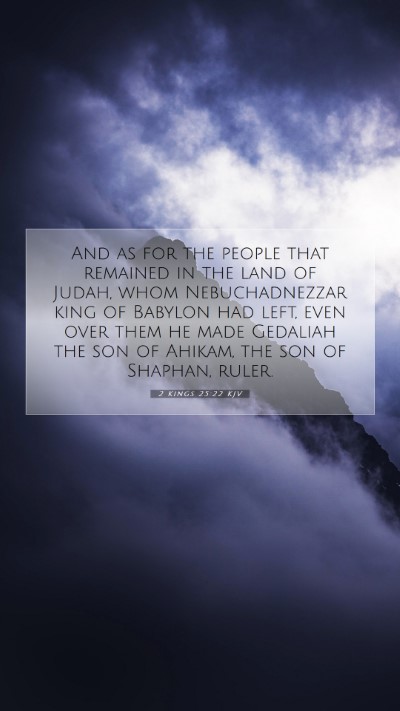Understanding 2 Kings 25:22
2 Kings 25:22 states: "And as for the people that remained in the land of Judah, whom Nebuchadnezzar king of Babylon had left, even over them he made Gedaliah the son of Ahikam the son of Shaphan ruler."
This verse serves as a pivotal moment in the narrative of the fall of Jerusalem and the subsequent exile of the Israelites. By analyzing the context and the implications of this verse, we can gain deeper Bible verse meanings and understanding Scripture.
Contextual Overview
Following the destruction of Jerusalem, Nebuchadnezzar, the Babylonian king, appointed Gedaliah as governor over those who remained in Judah. This action reflects the political landscape after the conquest and the challenges the Jewish people faced amid foreign domination.
Biblical Exegesis
According to Matthew Henry's Commentary, this verse highlights the mercy of God, allowing a remnant of His people to remain in their land, potentially for rebuilding and restoring their relationship with Him. The presence of a ruler like Gedaliah signifies hope for some degree of autonomy and governance during a time of oppression.
Albert Barnes points out that Gedaliah was a descendant of Shaphan, a notable figure who had earlier served in the court of Josiah. This lineage suggests a continuity of governance and a connection to Israel’s past, emphasizing a remnant that could serve the Lord amidst challenges.
In Adam Clarke's Commentary, he elaborates on the significance of leadership during turbulent times. Gedaliah's appointment serves as a temporary restoration, a glimmer of hope that the people could rely on a familiar figure while they navigate their tumultuous existence under Babylonian rule.
Theological Implications
This verse invites us to reflect on God's sovereignty even in dire circumstances. It underlines the theme of redemption and restoration, reminding us of the presence of God's grace. Despite the destruction, God still provides opportunities for His people to thrive in some capacity.
Application to Daily Life
Believers today can find reassurance in the perseverance of God's promises. Just as Gedaliah’s leadership offered a form of stability, we too can seek leadership and community to navigate our challenges. Moreover, this verse encourages us to recognize that even in uncertainty, God has a plan for those who are faithful.
Cross References
- Jeremiah 40:5-6 - Relates directly to Gedaliah's appointment and the circumstances following the fall of Jerusalem.
- Jeremiah 39:10 - Emphasizes the fate of those who were left behind in Judah.
- 2 Kings 25:12 - Discusses the remnant that Nebuchadnezzar allowed to remain.
Conclusion
In conclusion, 2 Kings 25:22 emphasizes a crucial transitional period for the Israelites. The appointment of Gedaliah illustrates God's ongoing involvement in their lives, even amidst adversity. This verse and its commentary serve as a profound reminder of the hope and divine providence available to all who seek to understand God's Word through Bible study insights.
As you engage with this text, consider the broader implications in your own life and how you might apply Scripture analysis and exegesis methods to deepen your **understanding of Scripture**.


